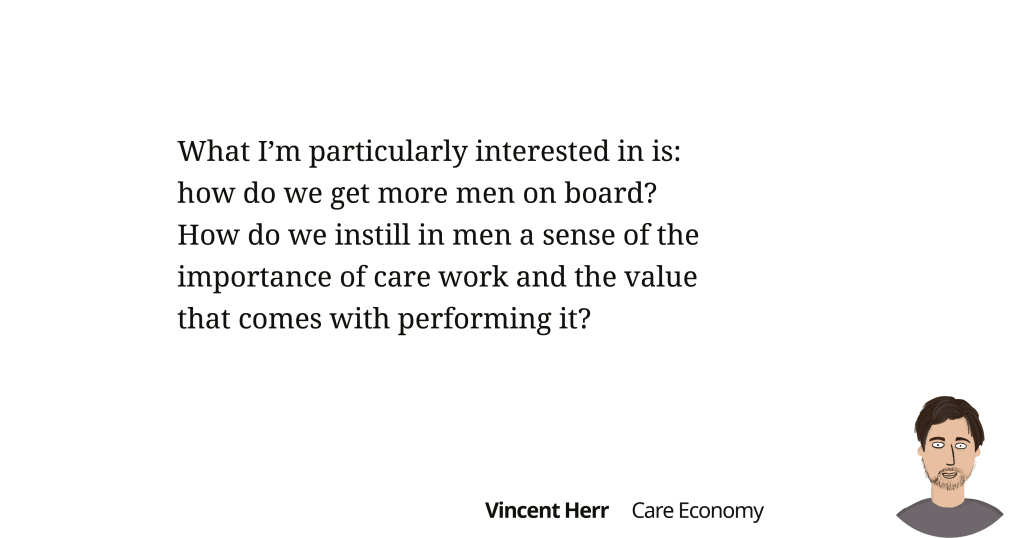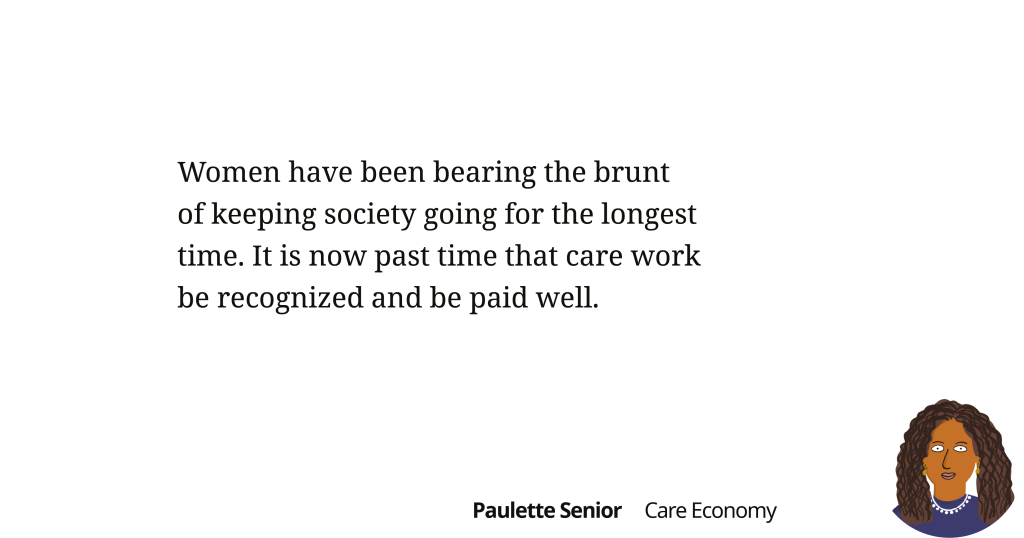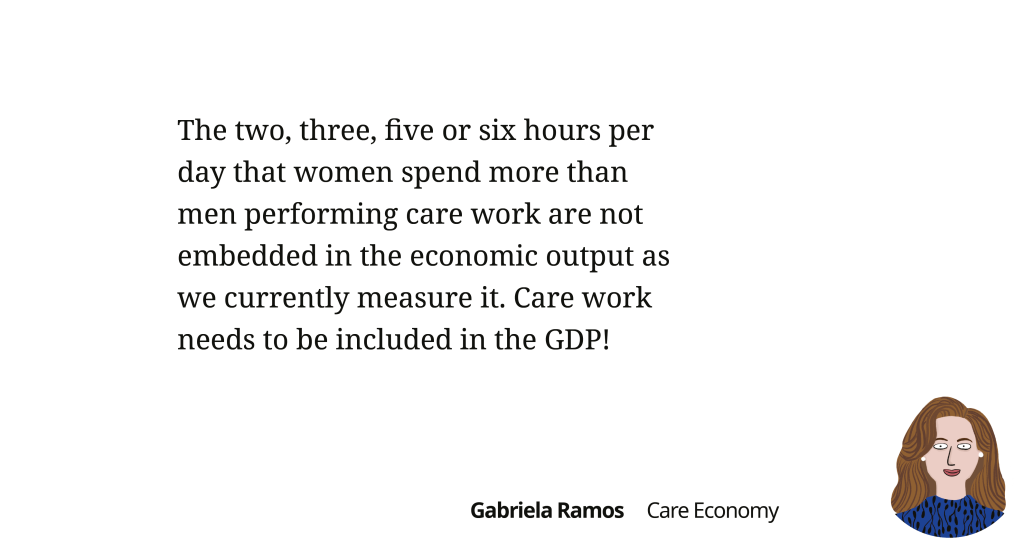Care Economy

The care economy is the bedrock of the quality of life in our societies. It includes paid and unpaid work, revolves around caring for those who are most in need, and is mostly done by women and marginalized groups. Despite its importance in safeguarding a society’s most basic processes and contributing to economic growth and stability, the care economy and its workers do not consistently receive adequate compensation or social recognition. Globally, women do three to ten times more unpaid care and domestic work than men.[1] Women also make up 70 percent of the global paid care workforce, while only representing 25 percent of senior roles.[2]
The unequal gender distribution in the care economy and the low status accorded this work significantly limit women’s social, political, and economic empowerment. Unpaid care work, which requires considerable time and resources, is one of the main barriers to paid employment, succeeding in other careers, or taking up political office; by one estimate, 606 million women remain outside the labor market because of their unpaid care responsibilities.[3] As a critical source of employment for women, care jobs are key to ensuring that women’s livelihoods and prospects are strong. Yet growth in this sector is often fueled by the expansion of low-wage jobs at the most insecure end of the labor market.[4] Such jobs are characterized by low pay, low status, poor working conditions, and limited social protections. Furthermore, migrant workers and workers representing ethnic minorities are dramatically overrepresented in those jobs, making the paid care sector a significant source of inequality for the world’s most vulnerable women.[5] Consequently, women’s disproportionate share of unpaid care work and poorly compensated care work prevent women from fully participating in the paid economy—leading to gender gaps in employment rates, wages, and pensions.
Both within the G7 and beyond, the care economy faces three broad challenges: First, the care economy lacks the social status and recognition in line with its contributions. Second, workers in the care economy do not receive adequate compensation and often lack adequate job protections, and much care work remains uncompensated. Third, men participate in the care economy far less than women do, particularly with respect to the unpaid care sector.
[1] Laura Addati, Umberto Cattaneo, Valeria Esquivel, and Isabel Valarino, Care Work and Care Jobs for the Future of Decent Work (Geneva: International Labour Organization, 2018): 43.
[2] Gary Barker, Aapta Garg, Brian Heilman, Nikki van der Gaag, and Rachel Mehaffey, State of the World’s Fathers: Structural Solutions to Achieve Equality in Care Work (Washington: Promundo-US, 2021).
[3] Addati, Cattaneo, Esquivel,.and Valarino, 38.
[4] Mignon Duffy and Amy Armenia, Paid Care Work Around the Globe: A Comparative Analysis of 47 Countries and Territories (UN WOMEN Discussion Paper, 2021).
[5] Ibid.
Our Experts

Vincent-Immanuel Herr (Germany) is a HeForShe catalyst for UN Women Germany and partner at Herr & Speer, a political consulting firm focused on gender equality and European integration. He is an outspoken public advocate for male allyship and has published numerous articles on this topic.

Gabriela Ramos (Mexico) is the Assistant Director-General for the Social and Human Sciences of UNESCO, where she oversees the institution’s contributions to building inclusive societies. She previously worked as Cabinet Director and Sherpa for G20, G7 and the Asia-Pacific Economic Cooperation (APEC) at the OECD.

Paulette Senior (Canada) has devoted her life and career to breaking down systemic barriers and building up diverse women and girls. Her personal experience immigrating to Canada from Jamaica as a young girl ignited her interest in social justice, and she is a sought-after thought leader on issues of gender equity and gender-based violence; women’s poverty and the wage gap; girls’ empowerment; and leadership. Since 2016, Ms. Senior has served as the President and CEO of the Canadian Women’s Foundation.
Statements from our members
Features
-
 Videos
VideosRicarda Lang: „Wir brauchen eine feministische Wirtschaftspolitik!“
 More
More
-
 Videos
VideosVincent-Immanuel Herr on the Care Economy
 More
More
-
 Videos
VideosPaulette Senior on the Care Economy
 More
More
-
 Videos
VideosGabriela Ramos on the Care Economy
 More
More
Show all RELATED Features





